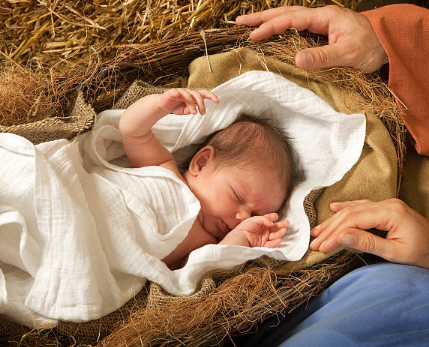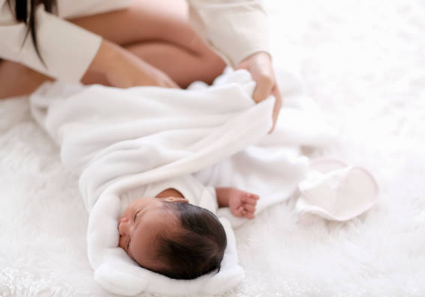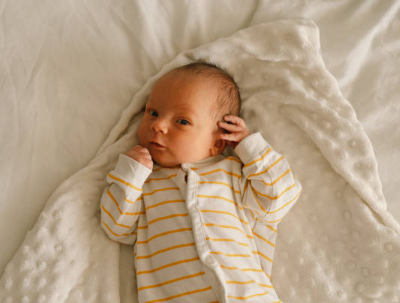There are a lot of baby swaddling clothes out there, and each one claims to be the best swaddling one, which makes choosing the best swaddling one for a baby really tricky for both new and intended parents. To help you avoid placing unsafe swaddling in your baby’s crib and to help narrow down your best options, check out our step-by-step guide to swaddle buying. Here, we’ll cover what to look out for in baby swaddling and why swaddling is a must-add item in every baby’s registration.

Why Swaddled Babies?
The age-old practice of swaddling – aka wrapping your baby like a wrap – gives babies a feeling of comfort, familiarity, and security. That’s why the American Academy of Pediatrics (AAP) says swaddling can be effective in helping babies calm and promote sleep if done correctly. That’s why nurses and midwives always wrap newborns! Here’s what swaddling can do for your baby:
The swaddling baby turns on the sedative reflex. Swaddle is an integral part of the soothing baby 5S, which is a series of womb-like sensations (swaddling, rocking, boosching, sucking, and holding the baby in a side/prone position) that trigger the baby’s calming reflex – aka the natural “off switch” for irritability and the “off switch” for sleep.
Swaddles can prevent startles. Swaddling with your arms facing down helps counteract your baby’s Moro reflex, also known as the startle reflex. This means that when you place your baby in the bassinet, swaddling helps prevent the baby from feeling like he’s falling. It prevents babies from accidentally hitting their own face due to natural arm movements.
Swaddles are a safe alternative to blankets. Swaddles eliminate the need for loose blankets in your baby’s sleeping space. Loose blankets and bedding should never be used in the crib or bassinet as they can increase the chance of the baby suffocating.
When to Wrap Your Baby in Swaddling Clothes?
You should wrap your baby in swaddling clothes for naps and nighttime sleep from the start… And continue to do so during the fourth trimester of your baby’s absence. This is the period of three to four months after birth, and the newborn’s still-developing brain and nervous system still rely on the womb-like sensations of 5S for sleep and comfort.
Babies should loosen their swaddling clothes most of the time when they are awake, but if they are particularly irritable and need extra help settling down, using swaddling outside of bedtime can help.
While babies usually do best in swaddling at 4 to 5 months of age, it is important to stop swaddling once the baby can roll. (Babies in swaddling clothes may roll onto their tummy and get stuck in this position because their hands are not free, which is dangerous.)
What Are the Different Types of Baby Swaddling?
Not all swaddling blankets are created equal! Here are the details of the types of swaddling clothes you’ll find in stores or that can be placed in the baby registry:
Traditional swaddling blankets: These thin blankets made of soft muslin or cotton are usually about 47 inches square. They need to be manually folded around the baby to form a comfortable wrap. Nurses and midwives most often wrap newborns in such swaddling clothes after they are born. (Here’s how to fold a traditional swaddling one.)
Cocoon or Boot Swaddle: These swaddling blankets are designed without any fasteners such as zippers or velcro. Instead, they rely on well-placed pouches and “wings” to protect your baby.

Velcro swaddling: These “ready-to-use” and easy-to-use swaddling blankets secure your baby’s body inside a bag with velcro “wings” that securely wrap your baby’s arms. (The award-winning Sleepea swaddling also features Velcro leg flaps and two-way zippers for a safe and secure fit.)
Bag swaddling: Here, your baby is held tightly in a zippered or velcro bag or bag, but their arms do not have any additional function to fix.
What Is the Difference Between a Newborn Swaddling and a Sleeping Bag?
Newborn swaddling clothes are designed to mimic the comfortable embrace of the womb, holding the baby’s arms around the body. Unless your baby is securely wrapped in an SNOO, swaddling blankets are only for babies who can’t roll yet. A sleeping bag is a wearable blanket where a baby or toddler’s arms can move freely. This is another way to keep your child warm while they sleep, and there is no danger of the blanket coming loose.
What Is Transitional Swaddling?
Transitional swaddling allows the arms to sleep with the arms open and is suitable for babies who are about to transition from infant swaddling to sleeping bags. Some transitional swaddling clothes still wrap the baby’s arms with loose cloth, while others allow one and both arms to sleep freely. For example, Sleepea is not only a Velcro baby swaddling swaddle, but also a transitional swaddling one. Each Sleepea has snap closures on both shoulders that can be opened to let your little one Xi a no-arm nap, which is probably why Good Housekeeping has chosen Sleepea as the best transitional swaddling.
Remember: if your baby is rolling, transitional swaddling or sleeping bags are a safety necessity! Once your child is able to roll over on his stomach, it is no longer safe to wrap up. They need to be able to push up from the mattress with their hands.
Best Baby Swaddle Essentials: Simple to Use
Swaddle isn’t always an easy task. In fact, the nervousness of new parents combined with sleep deprivation can make swaddling clothes feel completely impossible. This means that parents may:1)give up swaddling prematurely, or 2)wrap the baby in an improper way that causes the swaddling to loosen, spread out, or cover the baby’s mouth and nose, putting their child at risk. That’s why it’s important to choose a swaddling one that’s easy to use correctly. One worth considering: The Sleepea 5-Second Swaddle, which was named “Best Easy Swaddle” by Babylist,”Best Easiest Swaddle” by What to Expect, and reviewers from New York Magazine’s Strategist simply noted that Sleepea is “magical.”
Best Infant Swaddle Must: AAP Approved
In 2022, the AAP released an update to safe sleep recommendations, which included warnings for aggravated swaddling clothes, calling them “unsafe and not recommended.” The nonprofit, which is made up of 67,000 children’s doctors, went on to warn that aggravated swaddling clothes can lead to lower oxygen levels, which could damage the baby’s developing brain if it continues. In addition, worsening swaddling clothes may also impair the baby’s excitement, which may increase the risk of sudden infant death syndrome (SIDS).

In short, always choose non-weighted swaddling, always place your baby on your back, and always make sure there are no loose bedding, cushions, pillows, stuffed animals, sleep positioners, recliners, and wedges in the crib or bassinet.
The Best Baby Swaddling Must: Breathability
To help keep your baby cool and comfortable throughout sleep, look for swaddling clothes made from breathable, natural fabrics like cotton. (Avoid man-made fabrics such as wool as they can trap heat.) The choice of fabric is important because your child’s body temperature rises much faster than you, and they sweat less, making babies particularly susceptible to overheating, which can affect sleep. and increases the risk of SIDS in the baby.
For extra breathability, opt for 100% GOTS certified organic cotton swaddling. The Sleep Foundation states that organic cotton is more breathable than regular cotton. The National Eczema Association reports that it’s best to choose organic cotton whenever possible.
The Best Baby Swaddling Must: Hip Safety
When a baby has their legs straight in swaddling clothes, it can impair the normal development of the buttocks and lead to hip dysplasia. With hip dysplasia, make sure that the ball and socket in your baby’s hips, which are moving freely, no longer fit perfectly. On the contrary, the ball socket becomes too shallow, so the ball keeps popping out. To help keep your little buttocks healthy, look for a swaddling blanket that fits snugly around the arms but is loose around the hips and legs so your child can flex, flex, and open the hips as easily as a frog. Not sure if your chosen swaddle has the perfect combination of a snug top and a loose bottom? Check to see if the International Institute of Hip Dysplasia (IHDI) has marked your swaddle pick as suitable for hip health. (PS: Sleepea, Sleepea Comforter Sack, and SNOO Sack are all considered hip health options by IHDI.)
Best Baby Swaddling Must-Have: Easy Diaper Changing
Changing diapers in the middle of the night is a guarantee for babies, so your swaddling needs to allow for the simplest diaper changes. To do this, you need to avoid complicated swaddling blankets that require the swaddling blanket to be completely removed and rewrapped every time you change a diaper. Choose a swaddling one with an easy-to-use double-sided zipper and/or an ultra-quiet velcro fastener so your baby doesn’t wake up or become irritated during a diaper change.
The Best Baby Swaddling Must: Fit
Do you know how to buy jeans of the same size at your favorite store and a completely different size of jeans at another store? The same goes for baby products. Before buying any baby swaddling, check the size chart (which should include pounds) and browse online reviews to see if parents think the swaddling is on the small, large, or just right side. If you can place two or three fingers between your baby’s chest and swaddling, your baby is in the ideal swaddling size. Also, make sure the swaddle fits snugly at the arms and loose at the hips. (Your baby should be able to move their legs easily.)
